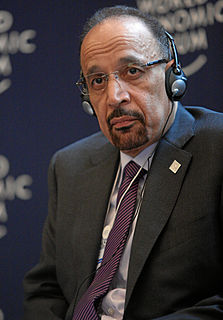A Quote by Adel al-Jubeir
After the revolution of 1979, Iran embarked on a policy of sectarianism. Iran began a policy of expanding its revolution, of interfering with the affairs of its neighbors, a policy of assassinating diplomats and of attacking embassies. Iran is responsible for a number of terrorist attacks in the Kingdom, it is responsible for smuggling explosives and drugs into Saudi Arabia. And Iran is responsible for setting up sectarian militias in Iraq, Pakistan, Afghanistan and Yemen, whose objective is to destabilize those countries.
Quote Topics
Affairs
Afghanistan
After
Arabia
Attacking
Attacks
Began
Countries
Diplomats
Expanding
Explosives
Iran
Iraq
Kingdom
Neighbors
Number
Objective
Pakistan
Policy
Responsible
Revolution
Saudi
Saudi Arabia
Sectarian
Sectarianism
Setting
Smuggling
Terrorist
Terrorist Attack
Terrorist Attacks
Those
Up
Whose
Yemen
Related Quotes
The Bush administration actually started out with an open mind towards Iran, by all indications. In fact, early in the administration, the White House tasked the various agencies of government to do an inter-agency review of Iran policy, as it did with Iraq policy and most of the big areas of the world.
My advice for Obama concerning Iran is just to do what you already promised you would do, open up communications with Iran. Which is what I did after the Shah was deposed, as you know when the revolutionary government came in, I still had diplomatic relations with Iran, otherwise the hostages wouldn't have been there. We had about, as you know, 60 some diplomats in Iran, they had about the same number in Washington.
The Saudis and Emiratis blame all of this on Iran. I think they’d have to grant, that as has been said, that the Houthis are an internally generated movement in Yemen and the Saudis were supposed to be dealing with the Houthis, who started out in essence along their border. So one of the things that we’re seeing is a complete failure of Saudi policy toward Yemen over the past 10 years, but the Saudis totally believe that the reason the Houthis are able to succeed militarily is the amount of money, advice, and guns they are receiving from Iran.































